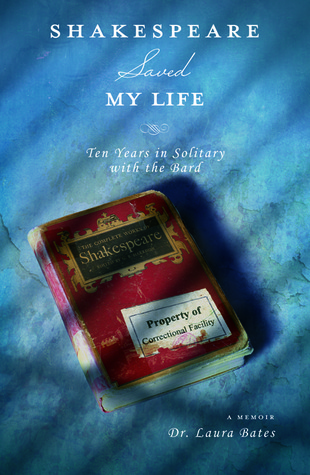More on this book
Community
Kindle Notes & Highlights
by
Laura Bates
Read between
January 9 - January 13, 2024
“Everyone just puts themselves into so many prisons,” Newton had said,
“What did you mean,” I asked him, “when you said that Shakespeare saved your life?” “I meant it both ways: literally and figuratively,” he told me. “Literally, Shakespeare saved my life. For so many years, I had been really self-destructive, on the razor’s edge every day. I’m confident that I would’ve done something drastic and ended up on death row. Or I would’ve one day found the courage to take my own life. So literally, he saved my life.” It sounded like he was talking about suicide, but I couldn’t believe it—I didn’t want to believe it. “And I meant it figuratively,” he continued.
...more
This highlight has been truncated due to consecutive passage length restrictions.
Maybe you associate Shakespeare to that “high falutin’” class of society, but that is not Shakespeare’s fault, and you are mistaken if you think he targeted that class. Shakespeare is telling our story! He is telling the story of complex, conflicted people who are facing real issues, who have real problems, who know what it’s like to lose, who know what it’s like to cling to the edge, and who know what it feels like to be lost. But unlike many who attempt to use our circumstances to demean us, Shakespeare uncovers the power in these circumstances and offers you the tools to shape the life that
...more
This highlight has been truncated due to consecutive passage length restrictions.
He seemed fearless, and he was teaching me to be more fearless myself, not only in my prison work, but also in helping me to recognize that unfounded phobias, like fear of flying or fear of sailing, were good examples of the types of “prisons” that we all put ourselves into.
There appear to be two arguments under one subject. The first is that offering educational programs for criminals is, in effect, creating smarter criminals. It is a very tough argument to debate. What makes this argument so tough to oppose is exactly what will undo the argument. The second argument is essentially a question: Why should we do good things for those who have done bad things? So, to the first argument: The developing mind of a criminal is just that—the developing of a criminal mind. But where do we find data to support that argument? It is not as though the assumed criminal
...more
This highlight has been truncated due to consecutive passage length restrictions.
Shakespeare’s play opens with two short scenes that provide a framework for the play-within-a-play that is performed for the entertainment of a drunken bum who is literally picked up by a “lord” and made to believe he is, in fact, a wealthy man himself.
And the Lord is right! A person can be completely changed if the world around him is reshaped.”


